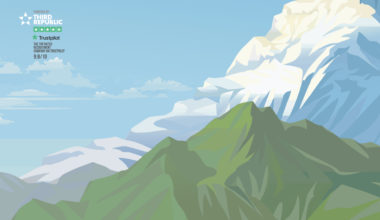Burnout is a state of emotional, physical, and mental exhaustion caused by excessive and prolonged stress. Burnout has long been associated with the IT world, common when you are overworked, and can cause some seriously negative effects in your life, both in and out of the workplace.
While Salesforce, as a community, promotes wellbeing and a healthy work life balance, we are still working in a projects-based world, where deadlines, stress and overtime is sometimes part of the job. However, it’s important to be able to identify potential burnout, before it happens.
Recently, I read “Advice From the Experts: Salesforce Best Practices From Influencers and MVPs“. Whilst I loved much of it, I don’t think paints the full picture. It’s part of my job, after all, as a Salesforce Consultant, to look for unintended consequences.
How do you find time to do it all?
Maybe these MVPs are superhumans (ok, quite likely in fact), but the rest of us shouldn’t feel put out.
Being a workaholic hurts your career. Lack of socialising can increase the risk of dementia. Giving up sleep can cause memory problems, mental health issues, obesity, and weakens your immune system. In the worst case this can lead to burnout: chronic workplace stress that has not been successfully managed.
Read on, where I will share some solutions, but first of all we need to recognise the scenario we are in.
Are you heading towards burnout?
The danger is that we do too much.
I live in the Netherlands where burnout is rising and, at the last count, affects 16% of the workforce. It’s actually not a good sign when every local doctor has a counsellor attached to their surgery to help discuss issues of overworking. Also, going for appointments to investigate mysterious aches and pains, isn’t the pleasantest way to enjoy time outside the office.
And it happens all too frequently. Due to a combination of conscientiousness and today’s “always on” lifestyle, I know a number of people that have had to take 6+ months off to recover from burnout. I think they would all say that it’s better to avoid it in the first place
So, if you can’t have it all, and if you are deeply passionate about something and want to focus on it, then something has to give.
Before I go on, I’ll admit it’s tricky. The Salesforce ecosystem is so engaging. From the Ohana to the product itself, it’s fun and a challenge at the same time.
Advice From the Salesforce Ohana
So here are some tips picked up from within our Ohana community.
Karen Mangia’s (VP, Customer Insights, Salesforce) book, “Success with Less”, is a very good starting point. It’s not about doing everything, it’s about focusing. As she memorably says “If the phone goes and you look at it and go ‘urgh’, then consider whether that person or topic is bringing you joy into your life” (i.e. discover what matters most to you, and minimalise the obligations which detract from this). There’s plenty more in her book about how to do more with less (and a bit of focus). So you can spend time participating at your local Trailhead Community Group, answering questions on the Trailblazer Community or doing Trailhead Quests, but you need to let go of something at the same time.
David Liu is now producing some excellent vlogs. My favourite one so far is: “You’re not working hard enough”. This led to a short, but interesting, discussion on twitter. The point is not to do everything, that’s just volume, but to be clever about it. By working hard, you’re challenging yourself and your comfort zones, growing yourself as a person.
Let’s put these two concepts together.
For a long time I’ve been volunteering for a charity which helps unlock people’s potential (including my own!). The requirement came in to build some reports and dashboards. With 9 years of experience now on the clock this is an easy task for me. What I actually did was reach out to my local Salesforce Saturday group and ask if anyone wanted to volunteer to do it instead. Rather than me build reports and dashboards, someone else is now doing this, gaining experience, and I’m mentoring them instead. For similar, or less, effort on my part, I’m getting the requirement done and helping someone else gain practical experience on the platform, whilst I practice mentoring. That’s an all-round win.
Final Thought
For more about burnout check out this Forbes article as a starting point.
And, lastly, a confession: I too work too much. It’s tricky as I love my Salesforce-related activities, but it’s important to focus on the overall picture and make sure it’s sustainable for both myself, and those near and dear to me. I’ve made inroads to improving myself, and take each day one step at a time.
What’s Next?
We were curious if working in fast-paced technology roles can lead to burnout. What are the levels of self-reported burnout in the Salesforce industry? Left unanswered, it can prevent Salesforce professionals from reaching their full capabilities, instead of feeling overwhelmed.
The annual Salesforce Salary Survey has a new twist this year! In partnership with Mason Frank, Salesforceben.com are asking the Salesforce Community about their wellbeing, including their experiences of burnout. The results of the survey provide valuable insights for everyone in the industry on salary, job demand, and the general makeup of the Salesforce ecosystem. Make your contribution today by taking the anonymous survey.
Read the full article at the link below.
source: https://www.salesforceben.com/are-you-heading-towards-burnout-advice-from-the-salesforce-ohana/


